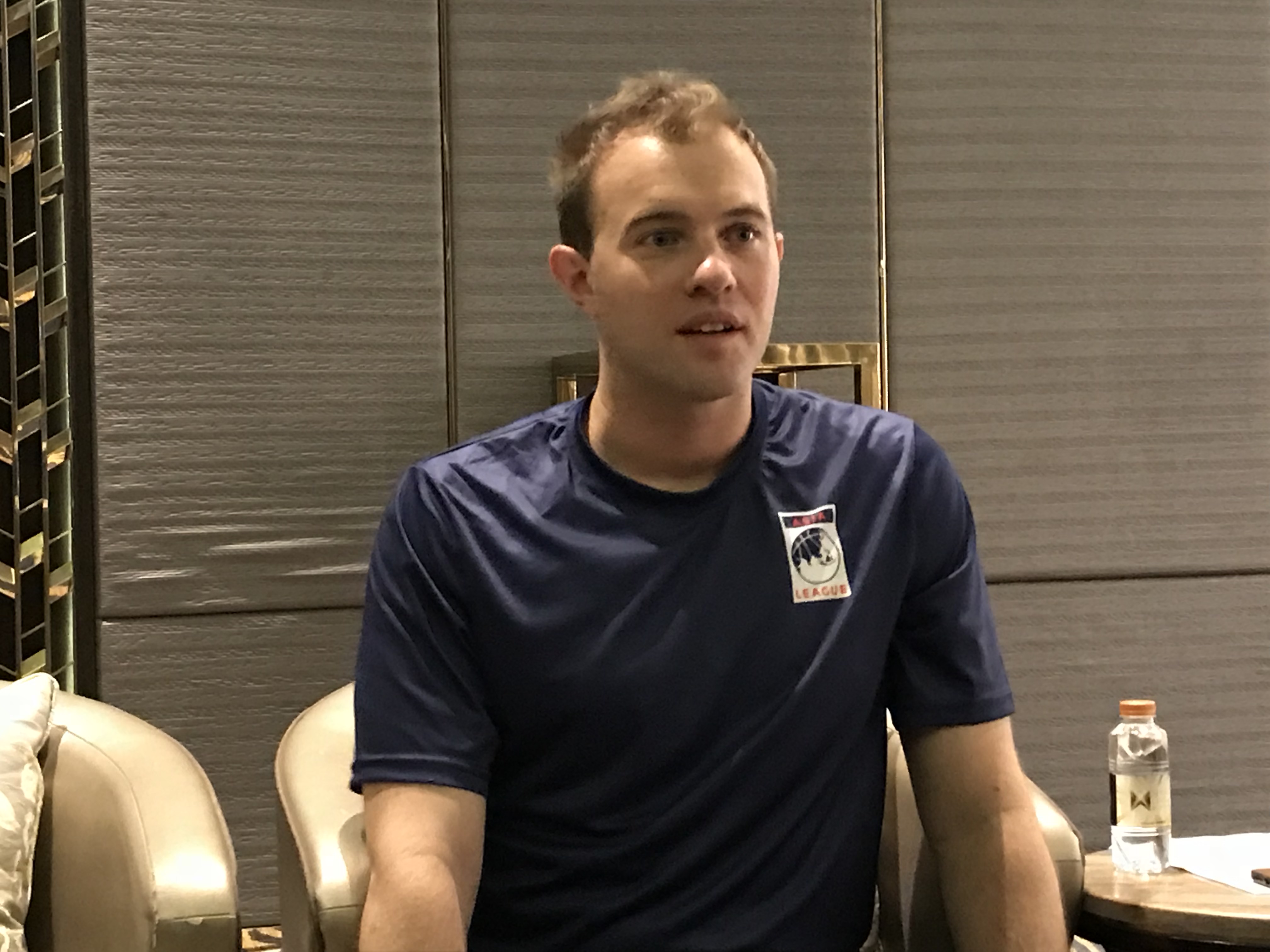
Asia League CEO Matt Beyer talks to the media during a break in the week-long Super 8 tournament in Macau.
MACAU—There’s no doubt that the sport of basketball has been growing exponentially in Asia for the past decade.
Most of the countries in the continent now have professional basketball leagues with the PBA, the oldest pay for play league in Asia being one of the premier associations along with China’s CBA.
But it’s not only domestic leagues, with the ASEAN Basketball League breaking ground in 2009 and becoming a platform for the Southeast Asian region to bolster ties through basketball.
Then in 2017, the Asia League was born to give a venue for professional teams across Asia to face against each other in a high-level competition.
CEO Matt Beyer has bold hopes for his brainchild. He wants the Asia League Super 8 to become the Asian basketball equivalent of the UEFA Champions League in European football.
“Absolutely, the ideal situation for the Summer League is to expand to 32 teams in three years and that it becomes the offseason basketball forum,” said Beyer during a conversation with the media Friday at Studio City here in Macau.
The Asia League has two tournaments, the Super 8 in July and the Terrific 12 in September but Beyer sees more chance for growth for the Super 8 since the month of July coincides with the offseason of many of the Asian associations.
“This could be the biggest offseason party for the teams. There will be concerts, a roster of foreign players, tons of media, the games will be broadcast over 30 platforms.”
Beyer, however, won’t just send out invitations left and right. He wants to ensure that there will be a competitive balance and would target the teams who are in the upper echelon of its respective leagues.
His method of inviting teams to play for the Asia League takes a similar cue to the one UEFA imposes for the Champions League where only the top teams from each domestic leagues—in the case of England, Germany, and Spain the top four are selected for the 2018-2019 tournament.
Beyer added that in the event that the Super 8 expands to 32 teams, the teams will play in a double round-robin group stage featuring home and away games.
Macau, whose government formed a partnership with Asia League, would then become the ground for the knockout semifinal and championship rounds.
“We want to see it mature as we go along, it requires a deep partnership with Fiba and the associations like the PBA,” said Beyer.